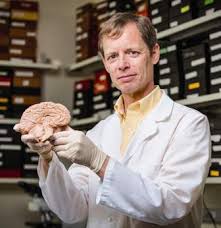 Sleep disturbances and daytime sleepiness severely impact the quality of life for many with PWS, as well as their parents and caregivers. Within the Global PWS Registry, about 50% of respondents report that their loved one suffers from excessive daytime sleepiness.
Sleep disturbances and daytime sleepiness severely impact the quality of life for many with PWS, as well as their parents and caregivers. Within the Global PWS Registry, about 50% of respondents report that their loved one suffers from excessive daytime sleepiness.
Dr. Thomas Scammell's group at Harvard Medical School is working to help identify the underlying neurobiology behind sleep issues in PWS. They're exploring how reduced function of neurons in the hypothalamus region of the brain may significantly contribute to daytime sleepiness in a project titled "Wake promoting effects of oxytocin."
Using animal models of PWS and an advanced technique called photoactivation, researchers are able to specifically target and activate certain subsets of neurons and then measure how that targeted activation impacts sleep and wakefulness in mice. The results from this project will advance our understanding of how hypothalamic dysfunction impairs sleep cycles in PWS and provide potential targets for intervention.
Dr. Scammell and his post-doctoral fellow Carrie Mahoney presented their work in 2016 at both International Prader-Willi Syndrome Organisation concerence in Toronto and the FPWR Family Conference in Rhode Island. His presentation at the FPWR conference, "Sleep in PWS: Clinical and Scientific Perspectives," was captured in this video and summary.








